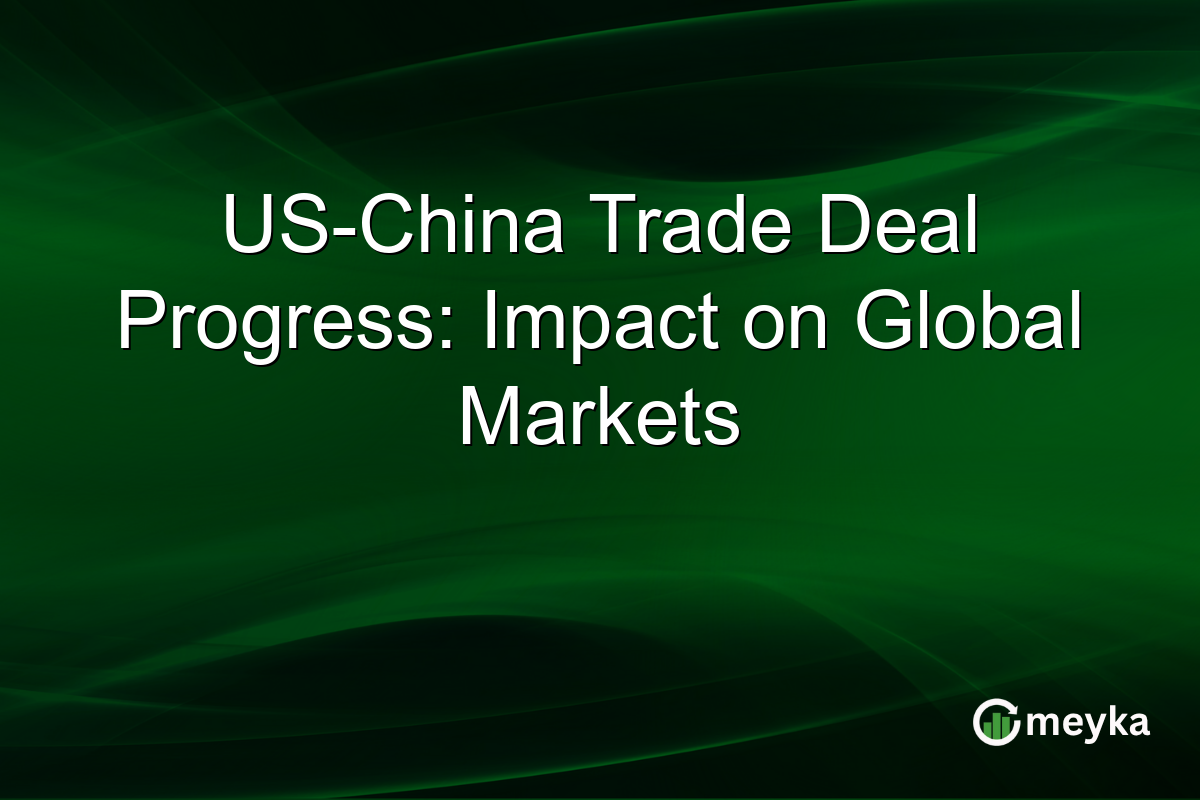US-China Trade Deal Progress: Impact on Global Markets
The progress in US-China trade talks is a pivotal moment for global markets, promising significant relief and potential stabilization in global economic growth. With former President Trump’s significant influence in past negotiations resurfacing during his current Asia trip, the spotlight is firmly on high-level discussions between the US and Chinese leadership. This development is crucial in light of ongoing concerns about prolonged trade tensions, including issues surrounding China tariffs. The implications for investors and global economic stability are profound and worth exploring.
US-China Trade Deal Negotiations
Recent negotiations between US and Chinese officials have signaled a positive shift towards finalizing a trade deal. This potential agreement comes on the heels of discussions during Trump’s recent Asia trip. The talks aim to ease tensions stemming from tariffs imposed over the past years, which have disrupted various sectors. Read more.
These discussions are not new but their intensified pace offers hope. Analysts believe resolving these trade issues could enhance trade freedom and bring tariffs under control, boosting investor confidence globally.
This shows a concerted effort by both countries to reach a mutually beneficial agreement, reflecting improved diplomatic relations.
Impact on Global Markets
The US-China trade deal’s potential completion is already influencing global markets positively. Stock exchanges in the US and Asia have shown upward trends in anticipation of a resolution. The easing of China tariffs has also been a key factor in this market optimism, with businesses poised to benefit from reduced costs.
Market experts suggest that a finalized deal could lead to a 1.2% increase in global GDP over the next year. This boost is particularly significant for export-driven economies in Asia, which have been adversely affected by the trade war.
For investors, this development underscores the importance of diversity and adaptability in portfolios, as market dynamics are likely to shift with changing trade policies.
Investor Sentiment and Economic Implications
Investor sentiment has been notably cautious amidst prolonged US-China tensions. However, the current progress in talks offers a renewed sense of optimism. A broad agreement would likely spur confidence and stabilize currency fluctuations, especially in emerging markets reliant on Chinese trade.
The implications extend beyond the immediate effects on tariffs, potentially setting a more stable ground for future international trade policies. Companies are beginning to forecast improved revenue projections, anticipating reductions in trans-Pacific trade costs.
Investors should remain vigilant, though, as the negotiations are complex and subject to change. Nonetheless, the current trajectory suggests a promising outlook for long-term global economic stability.
Final Thoughts
In conclusion, the advancements in the US-China trade negotiations are a beacon of optimism for global markets. The potential trade deal not only promises to ease economic tensions but also holds the potential to bolster global economic growth significantly. With Trump’s impactful presence during the Asia trip emphasizing the importance of these discussions, the outcome represents a significant geopolitical shift.
Looking ahead, investors are advised to stay informed and monitor how these negotiations unfold, as their conclusions could redefine trade dynamics and market stability globally. The ongoing dialogue suggests a continued commitment to resolving trade conflicts, which is crucial for sustained economic prosperity worldwide.
FAQs
The US-China trade deal is nearing completion and recent negotiations have been promising. High-level talks between the two nations have aimed at resolving tariff disputes and establishing better trade relations, fostering optimism in global markets.
A finalized US-China trade deal could stabilize global markets by reducing tariffs and enhancing trade freedom. Analysts predict a potential 1.2% increase in global GDP following the deal, benefiting economies dependent on trade with China.
Investors should stay informed and consider how their portfolios might be affected by changes in trade policies. The anticipated resolution could increase market stability, but vigilance is advised due to the complex nature of these negotiations.
Disclaimer:
This is for information only, not financial advice. Always do your research.






